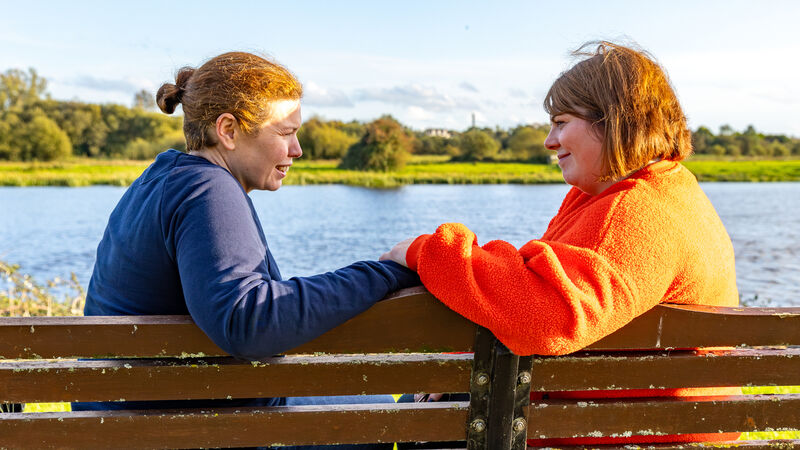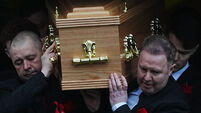'Why are we an afterthought?' — LGBT+ couples left out of State-funded fertility treatment online

Sonia Kelly and Tara Ryan. Sonia, who’s a childminder and baker, and her wife Tara, who’s a civil servant, earn less than €60,000 annually. Picture: Kieran Ryan-Benson
Starting next week, couples who are struggling to have children will be able to access Ireland’s first State-funded fertility treatment.
Following an assessment in one of eight regional fertility hubs, couples will be referred to private clinics where their treatment will be provided free of charge. Funding is available when there is a known clinical cause of infertility with limits based on age (41 for the woman, 60 for the man), BMI and the number of existing children the couple has.














